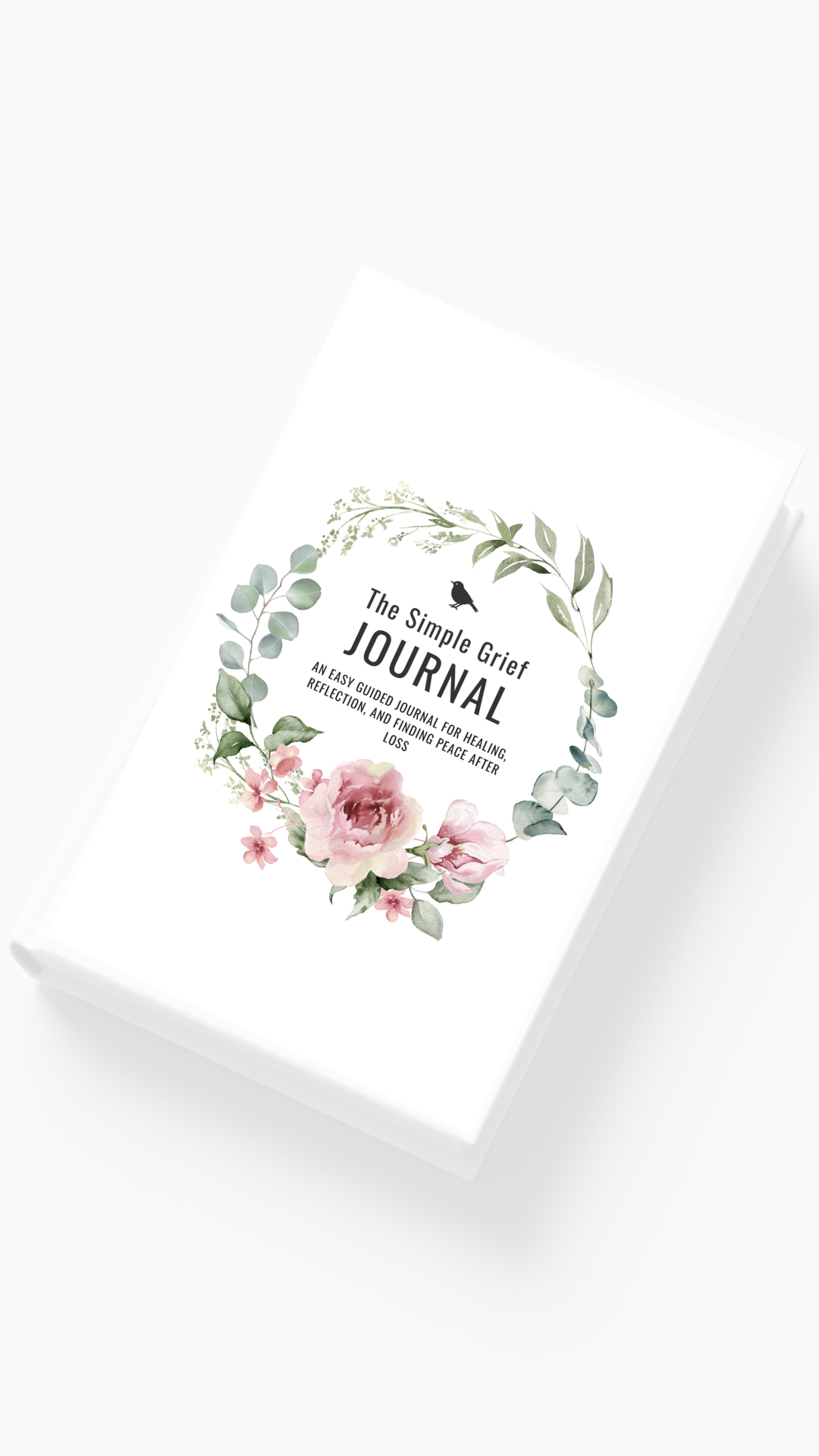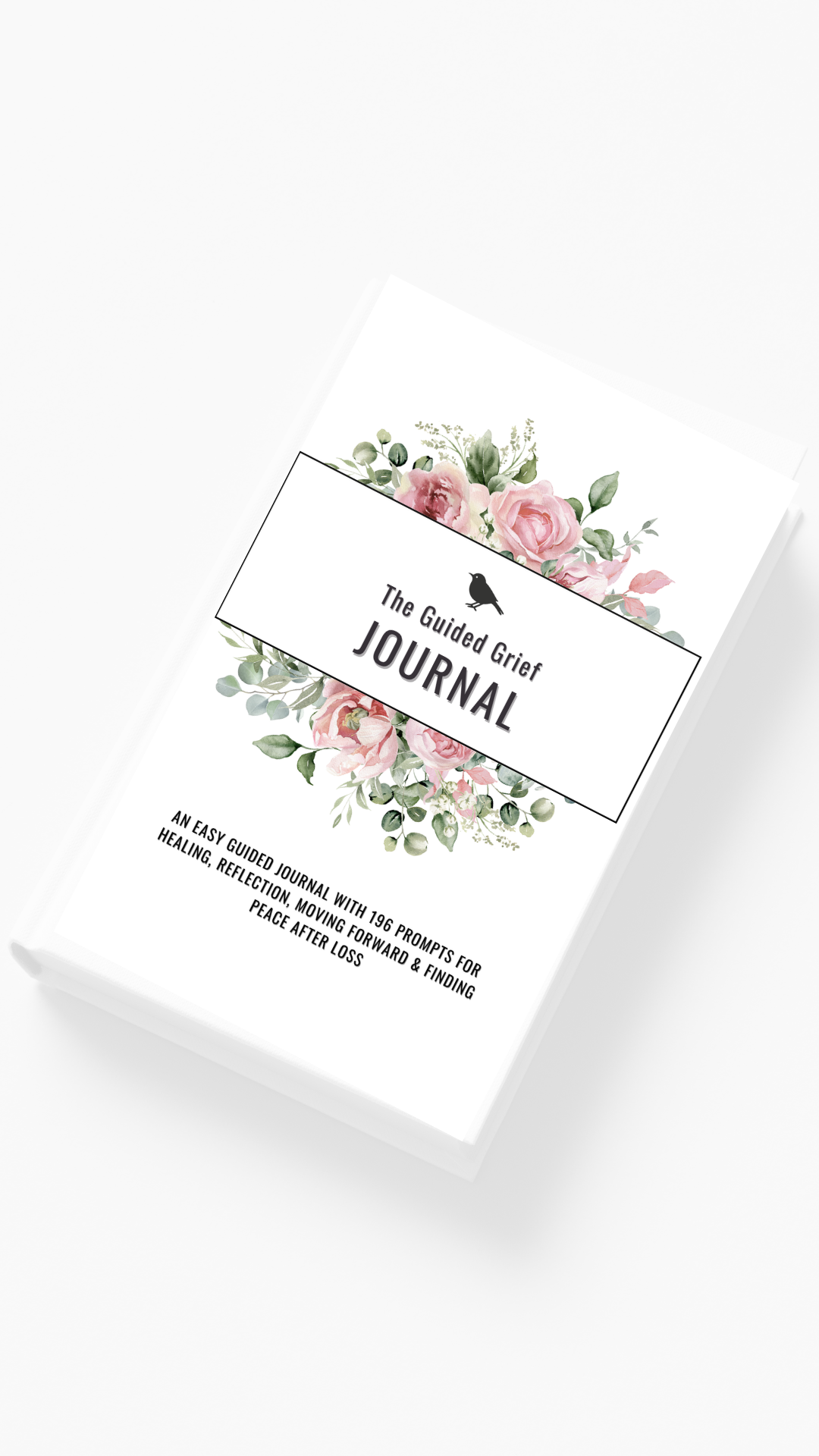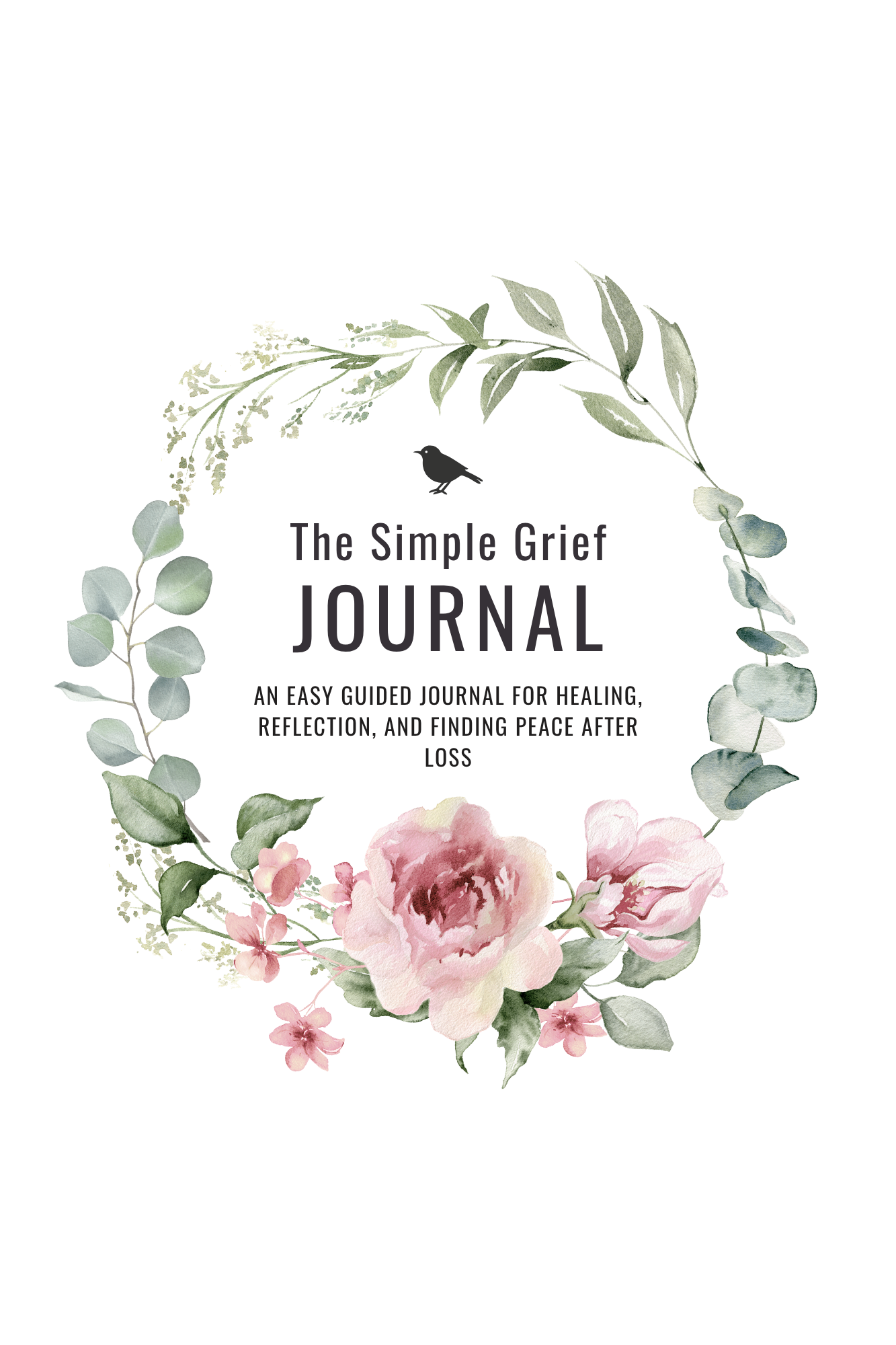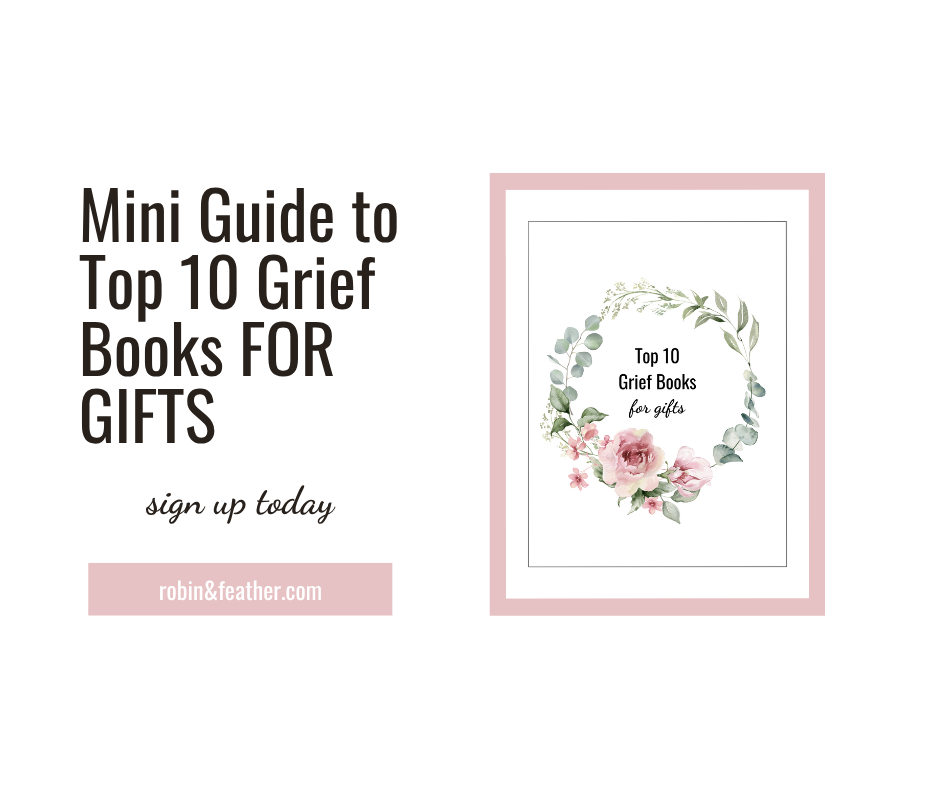- Home
- books for bereavement
Books for bereavement can be gentle companions through grief
When someone we love dies, it can feel like the ground has shifted beneath us. Grief doesn’t follow a straight path, it can come in waves, sudden storms, or long, quiet winters. In these moments, the right books for bereavement can offer a kind of silent companionship. It won’t get rid of the pain, but it can help you feel seen, heard, and just a bit less alone.
Books for bereavement aren’t about “getting over it.” They’re about honouring what has happened, accepting the obvious sorrow, and finding small ways to carry grief forward and continue living.
Whether you or someone you know is in the first raw days after a loss or navigating a longer journey, the right words, at the right time, shared with a bit of care and compassion, can be an unexpected comfort and a little light in the dark for some.
Now here is a question for you...
Why do books for bereavement matter?
Well, grief is deeply personal, yet universally experienced. Reading about loss can:
- Validate your feelings, especially when they feel chaotic or contradictory.
- Provide language for emotions you’re struggling to name; I speak from experience on this one, reading has helped make sense of quite of lot of things I hadn’t even realised were an issue until I put a name to them. They can also,
- Offer insight and perspective from people who have lived through it themselves so they know what they are talking about. They can also,
- Create some time for quiet reflection when talking feels just that bit too hard and,
- Help you feel less isolated especially in a world that sometimes expects people to “move on” too quickly. A common complaint from the bereaved, me included. You sometimes have to just remind people, gently that you are still grieving and it takes a good while to come to terms with it.
It is also worth noting about the use of books for bereavement, you don’t have to be a big reader!
Some books offer short daily readings or poems. Others are personal stories, simply and tenderly told. You can pick them up, put them down, and return to them whenever you’re ready and feel the need for inspiration or to escape somewhere else, even just for a bit.
Now, what are the different types of books for bereavement?
It’s a question you might be asking.
Grief touches every single life differently, and there’s no one-size-fits-all book.
So, here’s a bit of a rough guide to the types of additional books people often find helpful, with examples to explore when the time feels right, all with dozens of excellent reviews.
Firstly, there are,
Personal Memoirs of Grief
These are real-life accounts of people navigating loss. Often deeply honest and moving, they remind us that while grief is painful, it’s also deeply human and felt by all of us.
Some examples of the top sellers are:
The Year of Magical Thinking by Joan Didion — A haunting, beautifully written account of sudden loss, grief, and memory.
When Breath Becomes Air by Paul Kalanithi — A neurosurgeon facing terminal illness reflects on meaning, mortality, and love, the book is then is beautifully finalised by his wife after his death.
The Long Goodbye by Meghan O’Rourke — A poetic, intimate look at the author’s experience after her mother’s death.
Notes on Grief by Chimamanda Ngozi Adichie — A brief but searing reflection on the loss of a beloved father.
These books don’t offer easy answers, but they do offer companionship and the feeling that someone has walked this path before and is gently lighting the way ahead, just enough to help you see.
Next, come the ones that are gentle guides and comforting reflections
These books balance compassion and insight, often written by therapists, grief counsellors, or experienced authors. They’re especially helpful for those looking to understand the emotional and physical impact of grief.
Some top ten seller examples here are:
- It’s OK That You’re Not OK by Megan Devine — A validating, down-to-earth book that challenges the “fix-it” culture around grief.
- Healing After Loss by Martha Whitmore Hickman — A year’s worth of daily reflections, ideal for those looking for small moments of comfort.
- Grief Day by Day by Jan Warner — A practical and spiritual guide, with daily quotes and journal prompts.
These are books you can dip in and out of, perfect for those who want gentle support without being exhausted by having to read cover to cover.
Some other book types are spiritual, poetic, and reflective reads
If you find solace in nature, faith, or reflective writing, these types of books for bereavement can offer quiet wisdom and a broader spiritual context.
Some of the notable examples available are:
- The Wild Edge of Sorrow by Francis Weller — A poetic and soulful book that sees grief as a sacred rite of passage.
- A Grief Observed by C.S. Lewis — A philosophical yet raw reflection on love, faith, and loss.
- The Smell of Rain on Dust by Martín Prechtel — A spiritual view of grief rooted in Indigenous wisdom and ritual.
- To Bless the Space Between Us by John O’Donohue — While not solely about grief, this collection of blessings includes deeply moving reflections on loss, healing, and new beginnings.
And let’s not forget about grief journals & using writing as a way through
Sometimes, the most helpful books for bereavement is the one someone can write in themselves and here is a lovely quote to illustrate the point.
The simplest tool, a pen and paper, can be the most profound companion
Unknown
Grief journals offer a place to gently express what can’t always be said out loud—memories, emotions, and questions. Writing can be a healing outlet, to help make sense of grief or to simply release some of what is being carried. For those who feel overwhelmed by reading or don’t yet want someone else’s words, a journal can offer a place to go without a lot of expectation.
If you are on the hunt, look for journals with some soft prompts and using calming designs.
A simple lined notebook might be all that is required but a guided grief journal, or a keepsake-style journal with space for photos and letters can all be meaningful gifts—for yourself or someone who is grieving.
It might be nice for someone to be looking at a photograph or holding a special postcard or any number of things as they journal, it can help with focus.
Some Recommended Grief Journals are
Your Grief Your Words by Caroline Dawe
Each page is crafted to support you through the chaos and quiet of loss, with writing prompts, grounding tools, and gentle encouragement from a therapist who has walked this road too. or Prompted Journals
Sometimes the best journal is the one you might choose for yourself, and this might be perfect for a friend or family member.
for beautiful, elegant designs, perhaps linen-bound, leather, or floral cover and with quality paper.
These can be especially meaningful as memorial journals, where people can write letters to their loved one, record memories, or even paste in photos and keepsakes.
If you find comfort in gentle guidance, prompted journals can be a reassuring place to begin. With thoughtful questions and structured writing space, they offer just enough support to help you express what may feel too difficult to put into words.
To help you get started, I’ve created a free download of 50 journal prompts for grief as a gentle introduction to reflective writing, especially for those navigating loss for the first time.
Cardinal Journals
If you are not a fan of the Robin, the stunning cardinal bird plays a beautiful role in remembrance and this professionally made journal is just lovely.
A perfect companion to any blank journal, it gives you a starting point for writing and it is a slightly different sort of bereavement tool but really useful, as the creators share...
No matter where you are in your grief journey, a grief deck offers sensitive and supportive tools to help you process your emotions.
Its sixty illustrated cards, created by a diverse array of artists and grief workers, offer thoughtful prompts, simple activities, richly textured artwork, and grounding resources for coping with loss."
I have created a couple of journals here, a simple one for a beginner & one that has a more guided experience

Ideal for someone who has never journaled before and could use a simple set up to get started and get into the habit of grief journaling

Ideal for someone who would like a more guided approach for with a good amount of useful and practical Journaling prompts for grief.
How to choose the right bereavement book that speaks to the recipient
Books can speak gently where words sometimes fail and if you're unsure what to say to someone grieving, a book can carry part of that message for you, so,
Here are a few questions to help guide you to the perfect choice:
- Do you want a story, a guide, or something poetic and reflective?
- Are you looking to offer someone practical tools or simply to feel less alone?
- Would short passages be easier to manage right now?
- Is the grief tied to a specific type of loss—such as a parent, child, spouse, or pet?
And you know, just by pairing the book choice with a soft candle, a packet of herbal tea, or a small keepsake you can turn it into a comforting care package without much more effort and it shows you have put some thought into your offering.
Books can also make thoughtful additions to memory boxes or sympathy hampers, especially when paired with something symbolic—like a feather, a robin ornament, or a handwritten poem
You might also like to include a note like:
“I saw this and thought of you. No rush, no pressure—just something that might bring a bit of comfort when you’re ready”
Just that little bit of effort on your part to take just that little bit of extra time to think about the recipient is the most wonderful thing you could do.
Now, changing tack slightly, in case your bereavement book recipient is a child or a teen
There are quite a few age-appropriate books for bereavement that can help them understand and express their feelings and knowing you have some choice can make it an easier task all round.
A couple of examples for children are:
- The Invisible String & The Invisible String Workbook Companion by Patrice Karst
- Badger’s Parting Gifts by Susan Varley
- Water bugs and Dragonflies by Doris Stickney
And for teens:
- Straight Talk about Death for Teenagers by Earl Grollman
- You Are Not Alone by Alphabet Rockers (for older teens and young adults)
These books can open up safe conversations and help young people feel less confused or afraid of their emotions and might be just the ticket to help them heal.
They are not the only ones of course, but it gives you a starting point. It might be worth a conversation with the parent, guardian or caregiver to find out what is an appropriate book for them. Circumstances dictate everything here, so I would opt for guidance at any opportunity.
Ok, enough already, that is lot to be going on with so before I go, some final thoughts
Remember, grief doesn't follow a timeline or a tidy checklist. It’s deeply personal, unpredictable, and often misunderstood.
Books won’t take away the pain, but they can help you feel cared for, understood and seen. They can also offer gentle companionship when the world feels just that little bit too hard to handle.
Whether you read or the recipient reads one sentence or several chapters, whether you or they find there is some crying or nodding in quiet recognition, the right books have a way of meeting a person where they are
There is no right or wrong and I just know the reader will be very appreciative of your thoughtfulness either when they receive it or a bit later on in their journey, when the words begin to filter through and make more sense.

